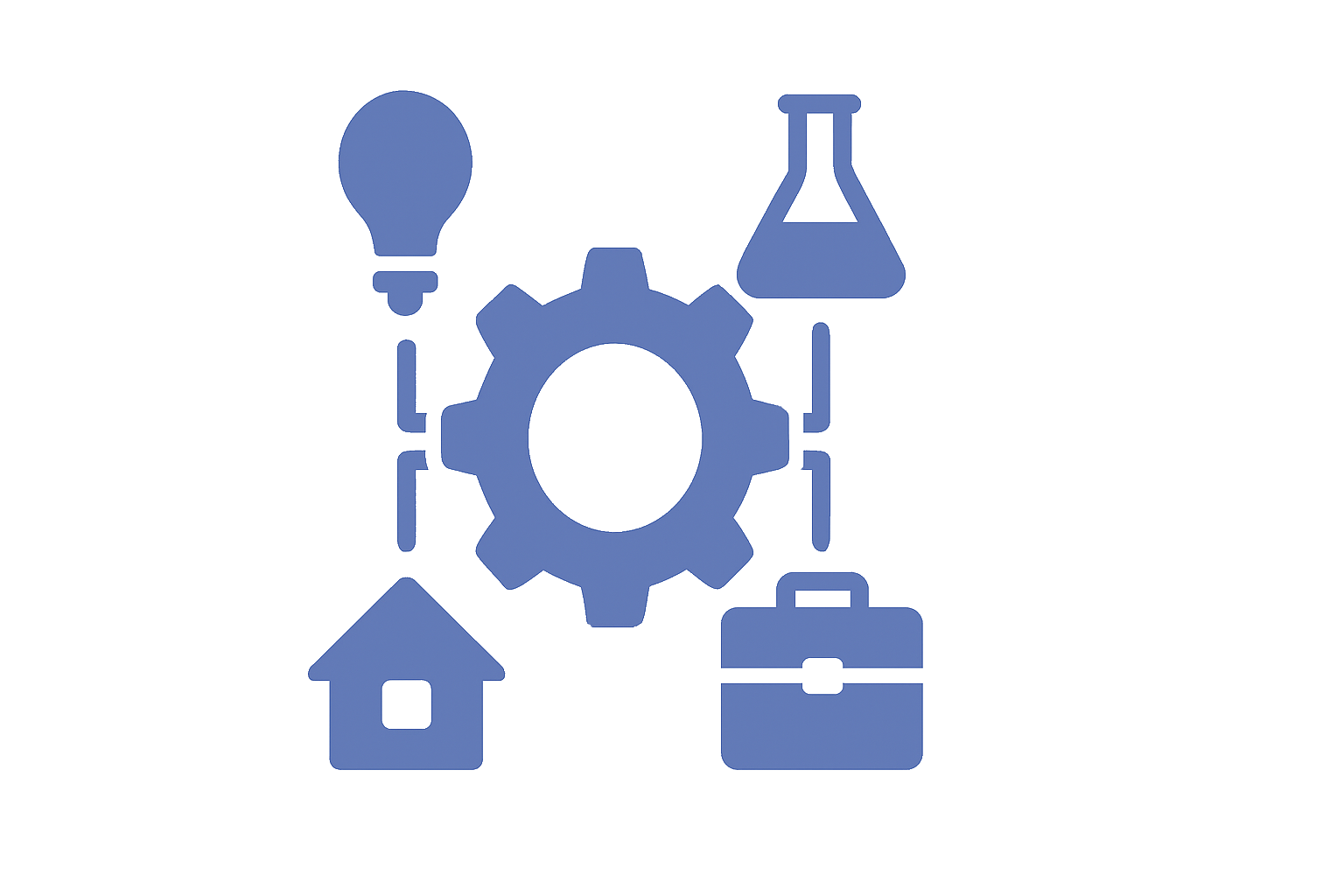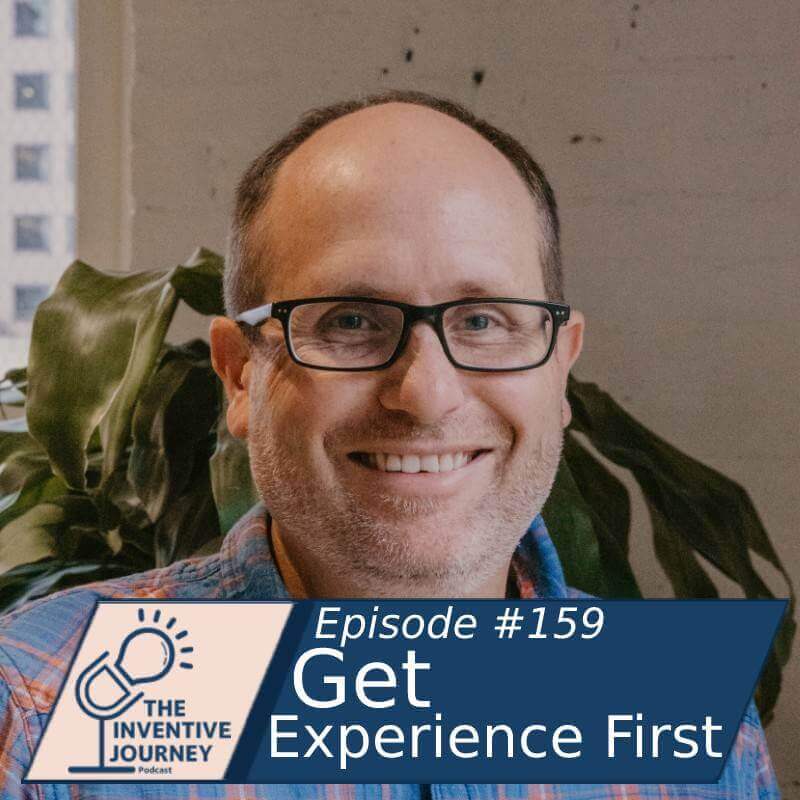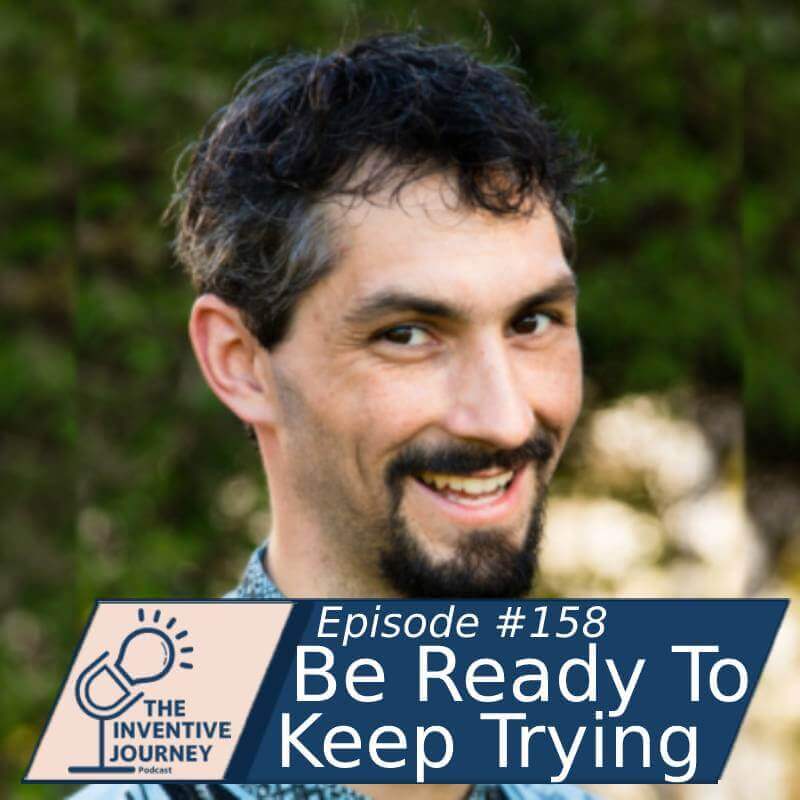Experience | Expertise

Experience | Expertise
Make Decisions And Commit Jedi Knight Devin Miller The Inventive Journey Podcast for Entrepreneurs 3/10/2021 Make Decisions And Commit We tend to think...
Start With A Brand Strategy Chelsea & Mitch GlaserDevin MillerThe Inventive Journey Podcast for Entrepreneurs3/9/2021 Start With A Brand Strategy Start with a brand strategy....
Start Small Amy ShickDevin MillerThe Inventive Journey Podcast for Entrepreneurs3/8/2021 Start Small Start small and start with a minimal viable product. It does not have...
Manage Your Own Expectations Brian FleckDevin MillerThe Inventive Journey Podcast for Entrepreneurs3/6/2021 Manage Your Own Expectations I think managing your own expectations. We all want...
Nurture Your Mentors Glenn FoleyDevin MillerThe Inventive Journey Podcast for Entrepreneurs3/5/2021 Nurture Your Mentors This is my take from that. This is what Mark McCormack...
How To Understand SEO Garit Boothe (garitboothe.com)Devin MillerThe Inventive Journey Podcast for Entrepreneurs3/4/2021 How To Understand SEO I like to make it super clear to...
Don't Be Afraid To Go First Jon TaggartDevin MillerThe Inventive Journey Podcast for Entrepreneurs3/3/2021 Don't Be Afraid To Go First Don't be afraid to go...
Go With Your Gut Scilla AndreenDevin MillerThe Inventive Journey Podcast for Entrepreneurs3/2/2021 Go With Your Gut You can have a great idea you, can even...
Be Resilient Dom EinhornDevin MillerThe Inventive Journey Podcast for Entrepreneurs3/1/2021 Be Resilient I would say before you jump in headfirst, ask yourself a question. Do...
Do Something Right Now Phil Kirkeiner Devin MillerThe Inventive Journey Podcast for Entrepreneurs2/27/2021 Do Something Right Now If you have a business idea, do the...
Pick Your Mentors Deepankar Katyal Devin Miller The Inventive Journey Podcast for Entrepreneurs 2/26/2021 Pick Your Mentors Pick your mentors they are very...
Take On The Headwinds Teri ChouDevin MillerThe Inventive Journey Podcast for Entrepreneurs2/24/2021 Take On The Headwinds I would recommend reading the book "Good To Great"...
Don't Overthink It Emily Dessingue Devin Miller The Inventive Journey Podcast for Entrepreneurs2/23/2021 Don't Overthink It Don't overthink it. I think we can get in...
Work From What You Know Steven SelikoffDevin MillerThe Inventive Journey Podcast for Entrepreneurs2/22/2021 Work From What You Know Work from what you know. And that...
Keep Going David Hojah Devin Miller The Inventive Journey Podcast for Entrepreneurs 2/20/2021 Keep Going Keep going. Never ever ever give up. Always...
Get Experience First Zachary RozgaDevin MillerThe Inventive Journey Podcast for Entrepreneurs2/19/2021 Get Experience First You've got to get some experience first. There are so few...
How To Manage Your Finances Paul AdamsDevin MillerThe Inventive Journey Podcast for Entrepreneurs2/18/2021 How To Manages Your Finances So one of the first things we...
Be Ready To Keep Trying Cody & ThomasDevin MillerThe Inventive Journey Podcast for Entrepreneurs2/17/2021 Be Ready To Keep Trying Be ready to keep trying and...
Try Out Your Ideas Markellos DiorinosDevin MillerThe Inventive Journey Podcast for Entrepreneurs2/16/2021 Try Out Your Ideas It's better to try than to talk about it....
Use Your Resources Forrest TuffDevin MillerThe Inventive Journey Podcast for Entrepreneurs2/15/2021 Use Your Resources Go work with either Score or the SBA- The small business...
Don't Be Afraid Of Feedback Darian Parrish Devin Miller The Inventive Journey Podcast for Entrepreneurs 2/13/2021 Don't Be Afraid Of Feedback It's just a sense...
Know When To Make A Change Where Are They Now Ray McKenzie Devin Miller The Inventive Journey Podcast for Entrepreneurs 2/12/2021 Know When To Make...
Cash Neda Vaseghi Devin Miller The Inventive Journey Podcast for Entrepreneurs 2/10/2021 Cash I would have to say cash. Make sure you really understand your...
Ask For Advice Drew Stone Devin Miller The Inventive Journey Podcast for Entrepreneurs 2/9/2021 Ask For Advice When you ask for money, you get advice....
Time Jesse Lakes Devin MillerThe Inventive JourneyPodcast for Entrepreneurs 2/8/2021 Time The best piece of advice is around time. Time is a constant. You can't...
Surround Yourself With People Who Inspire Eryn Anitavi Devin Miller The Inventive Journey Podcast for Entrepreneurs 2/6/2021 Surround Yourself With People Who Inspire Surround yourself...
Save Your Money First Amy Balliett Devin Miller The Inventive Journey Podcast for Entrepreneurs 2/5/2021 Save Your Money First Save your money first. That was...
How To Develop A Product Kevin Mako Devin Miller The Inventive Journey Podcast for Entrepreneurs 2/4/2021 How To Develop A Product Focus on MVP-minimum viable...
It's A Marathon, Not A Sprint Christopher Cardenas Devin Miller The Inventive Journey Podcast for Entrepreneurs 2/3/2021 It's A Marathon, Not A Sprint It's a...
Start With One Thing At A Time Vamsi Pannala Devin Miller The Inventive Journey Podcast for Entrepreneurs 2/2/2021 Start With One Thing At A Time...

































